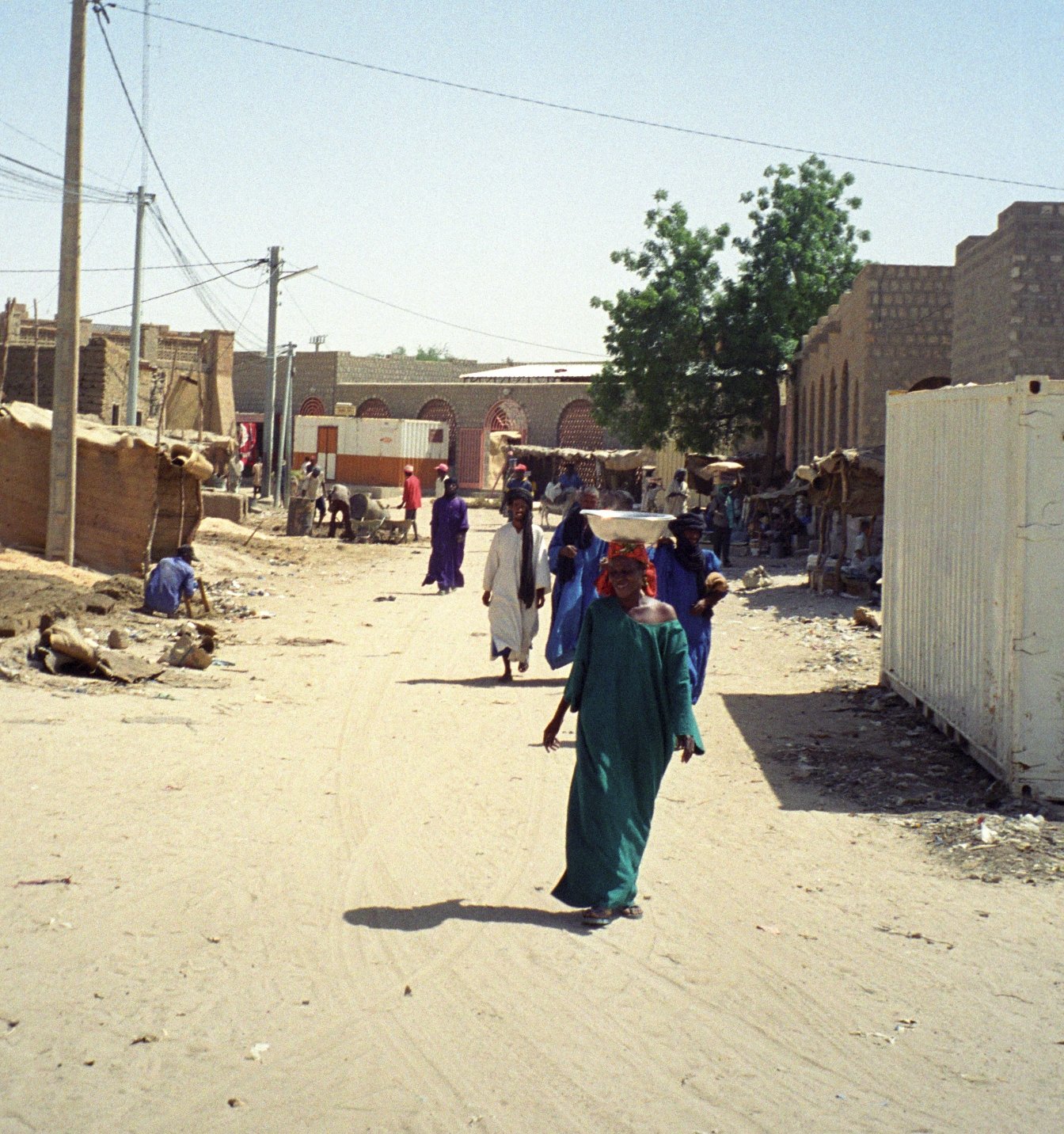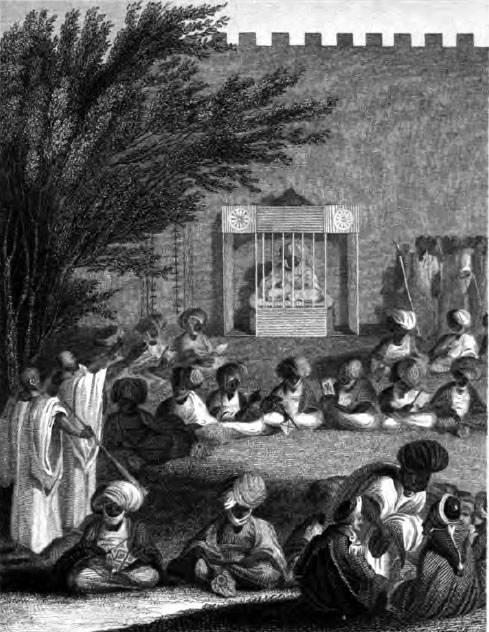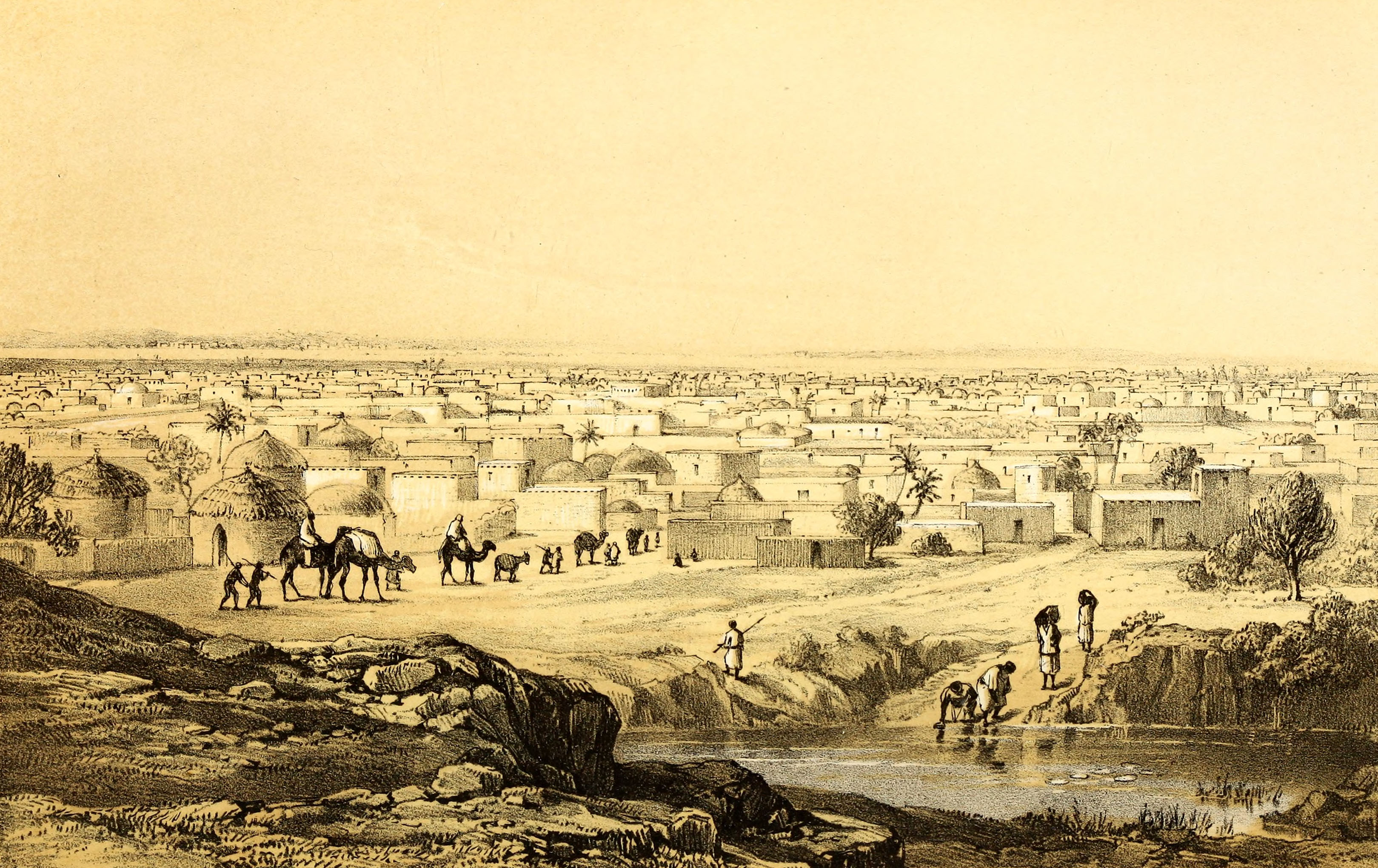|
Muhammad Bello
Muhammadu Bello ( ar, محمد بلو) was the second Sultan of Sokoto and reigned from 1817 until 1837. He was also an active writer of history, poetry, and Islamic studies. He was the son and primary aide to Usman dan Fodio, the founder of the Sokoto Caliphate and the first Sultan. During his reign, he encouraged the spread of Islam throughout the region, increasing education for both men and women, and the establishment of Islamic courts. He died on October 25, 1837, and was succeeded by his brother Abu Bakr Atiku and then his son, Aliyu Babba. Early life He was born to a Torodbe family who are partly Arabs and partly Fulani as stated by Abdullahi dan Fodio, brother of Usman dan Fodio who claimed that their family are part Fulani, and part Arabs, they claimed to descent from the Arabs through Uqba ibn Nafi who was an Arab Muslim of the Umayyad branch of the Quraysh, and hence, a member of the family of the Islamic prophet Muhammad, Uqba ibn Nafi allegedly married a Fulani wo ... [...More Info...] [...Related Items...] OR: [Wikipedia] [Google] [Baidu] |
Usman Dan Fodio
Usman Ɗan Fodio ( ar, عثمان بن فودي, translit=ʿUthmān ibn Fodio; 15 December 1754 – 20 April 1817) was a Fulani scholar, Sunni Islamic religious teacher, revolutionary, and philosopher who founded the Sokoto Caliphate and ruled as its first caliph. Born in Gobir, Usman was a descendant the Torodbe clans of urbanized ethnic Fulani people living in the Hausa Kingdoms since the early 1400s. In early life, Usman became well-educated in Islamic studies and soon, he began to preach Sunni Islam throughout Nigeria and Cameroon. He wrote more than a hundred books concerning religion, government, culture, and society. He developed a critique of existing African Muslim elites for what he saw as their greed, paganism, violation of the standards of the Sharia. Usman formed and began an Islamic religious and social revolution which spread from Gobir throughout modern Nigeria and Cameroon, and was echoed in a jihad movement led by the Fula people across West Africa. In 1803, h ... [...More Info...] [...Related Items...] OR: [Wikipedia] [Google] [Baidu] |
Mandé Peoples
The Mandé peoples are ethnic groups who are speakers of Mande languages. Various Mandé speaking ethnic groups are found particularly toward the west of West Africa. The Mandé Speaking languages are divided into two primary groups: East Mandé and West Mandé. The Mandinka or Manding (Malinke, Bambara and Dioula), a western branch of the Mandé, are credited with the founding of the largest ancient West African empires. Other large Mandé speaking ethnicities include the Soninke and Susu as well as smaller ethnic groups such as the Ligbi, Vai, and Bissa. Mandé speaking people inhabit various environments, from coastal rainforests to the sparse Sahel. They have a wide range of cuisines, cultures, and beliefs, and are organized mainly by their language group. Today they are predominantly Muslim and follow a caste system. Islam has played a central role in identifying the Mandé speaking people who originate and live in the Sahel regions the Mandinka and Soninke who ha ... [...More Info...] [...Related Items...] OR: [Wikipedia] [Google] [Baidu] |
Hugh Clapperton
Bain Hugh Clapperton (18 May 1788 – 13 April 1827) was a Scotland, Scottish naval officer and explorer of West and Central Africa. Early career Clapperton was born in Annan, Dumfriesshire, where his father, George Clapperton, was a surgeon. He gained some knowledge of practical mathematics and navigation, and at thirteen was apprenticed on board a vessel which traded between Liverpool and North America. After having made several voyages across the Atlantic Ocean, he was impressed for the navy, in which he soon rose to the rank of midshipman. During the Napoleonic Wars he saw a good deal of active service, and at the storming of Port Louis, Mauritius, in November 1810, he was first in the breach and hauled down the France, French flag. In 1814 Clapperton went to Canada, was promoted to the rank of lieutenant, and to the command of a schooner on the Canadian lakes. In 1817, when the flotilla on the lakes was dismantled, he returned home on half-pay. In 1820 Clapperton removed to ... [...More Info...] [...Related Items...] OR: [Wikipedia] [Google] [Baidu] |
Toucouleur People
__NOTOC__ The Tukulor people ( ar, توكولور), also called Toucouleur or Haalpulaar, are a West African ethnic group native to Futa Tooro region of Senegal. There are smaller communities in Mali and Mauritania. The Toucouleur were Islamized in the 11th century; their early and strong Islamic heritage, which is seen as a defining feature, is a "matter of great pride for them".Tukulor Encyclopædia Britannica They have been influential in the spread of Islam to West Africa in the Post-classical history, medieval era, later founded the vast Toucouleur Empire in the 19th century under Omar Saidou Tall that led a religious war against their neighboring ethnic groups and the French colonial forces. They speak the Pulaar language, and are distinct from but related to the Fula people, Fula, Wolo ... [...More Info...] [...Related Items...] OR: [Wikipedia] [Google] [Baidu] |
El Hadj Umar Tall
Hadji Oumarûl Foutiyou Tall (Umar ibn Sa'id al-Futi Tal, ar, حاج عمر بن سعيد طعل), ( – 1864 CE), born in Futa Tooro, present day Senegal, was a West African political leader, Islamic scholar, Tijani Sufi and Toucouleur military commander who founded the short-lived Toucouleur Empire encompassing much of what is now Senegal, Guinea, Mauritania and Mali. Lapidus, Ira M. (2014) A History of Islamic Societies. 3rd edition, New York: Cambridge University Press, pages 472-473. Name Omar Tall's name is spelled variously: in particular, his first name is commonly transliterated in French as ''Omar'', although some sources prefer ''Umar''; the patronymic, ''ibn Sa'id'', is often omitted; and the final element of his name, ''Tall'' ( ar, طعل, links=no), is spelt variously as ''Tall'', ''Taal'' or ''Tal''. The honorific ''El Hadj'' (also ''al-Hajj'' or ''el-Hadj''), reserved for a Muslim who has successfully made the Hajj to Mecca, precedes Omar Tall's name in ... [...More Info...] [...Related Items...] OR: [Wikipedia] [Google] [Baidu] |
Kano (city)
Kano (Ajami: كانو) is a city in northern Nigeria and the capital of Kano State. It is the second largest city in Nigeria after Lagos, with over four million citizens living within ; located in the Savanna, south of the Sahel, Kano is a major route of the trans-Saharan trade. The city has been a trade and human settlement for millennia. It is the traditional state of the Dabo dynasty who since the 19th century have ruled as emirs over the city-state. Kano Emirate Council is the current traditional institution inside the city boundaries of Kano, and under the authority of the Government of Kano State. The city is one of the medieval Hausa seven kingdoms and the principal inhabitants of the city are the Hausa people. Centuries before British colonization, Kano was strongly cosmopolitan with settled populations of Arab, Berber, Tuareg, Kanuri and Fula and remains so with the Hausa language spoken as a lingua-franca by over 70 million speakers in the region. Islam arrived i ... [...More Info...] [...Related Items...] OR: [Wikipedia] [Google] [Baidu] |
Kazaure
Kazaure is an Emirate and a Local Government Area of Jigawa State, Nigeria. Its headquarters is in the ancient city of Kazaure. Early history Kazaure was said to have been first settled by a group of Hausa (also known as Habe) hunter clan under the leadership of a warrior called Kutumbi. It was around the year 1300 CE. According to Oral Tradition passed down through the centuries by Griots, Kutumbi and his people were said to have migrated from the settlement of blacksmiths living on the Dala Hills-believed by historians to be the first inhabitants of the land now known as Kano. The legend of Kazaure's founding tells the story of how Kutumbi on one of his hunting expeditions found a valley surrounded by huge defensive plateaus and rich with rivers and small streams. He stayed in the area for quite some time until his family became worried over his long absence which was contrary to his usual hunting habit, they followed his tracks for many days. After a long and arduous journey, t ... [...More Info...] [...Related Items...] OR: [Wikipedia] [Google] [Baidu] |
Ribat
A ribāṭ ( ar, رِبَـاط; hospice, hostel, base or retreat) is an Arabic term for a small fortification built along a frontier during the first years of the Muslim conquest of the Maghreb to house military volunteers, called ''murabitun'', and shortly after they also appeared along the Byzantine frontier, where they attracted converts from Greater Khorasan, an area that would become known as al-ʻAwāṣim in the ninth century CE. These fortifications later served to protect commercial routes, as caravanserais, and as centers for isolated Muslim communities as well as serving as places of piety. The word ''ribat'' in its abstract refers to voluntary defense of Islam, which is why ribats were originally used to house those who fought to defend Islam in jihad. They can also be referred to by other names such as ''khanqah'', most commonly used in Iran, and ''tekke'', most commonly used in Turkey. Classically, ribat referred to the guard duty at a frontier outpost in order ... [...More Info...] [...Related Items...] OR: [Wikipedia] [Google] [Baidu] |
Nana Asma’u
Nana, Nanna, Na Na or NANA may refer to: People and fictional characters * Nana (given name), including a list of people and characters with the given name * Nana (surname), including a list of people and characters with the surname * Nana (chief) (died 1896), Mimbreño Apache chief * Nana (deejay) (born 1983), Malaysian ''Akademi Fantasia'' contestant * Nana (entertainer) (born 1991), a member of popular South Korean girl group ''After School'' * Nana (rapper) (born 1968), German rapper and DJ * Nana Astar Deviluke, a character in the manga series ''To Love Ru'' * Nana, a member of the South Korean girl group Woo!ah! * Nana, female UK garage singer, most notably on the song "Body Groove" by Architechs * Lulu and Nana (born 2018), pseudonyms for twin Chinese girls, who are allegedly the first humans produced from embryos that were genome-edited * Nana, name used for the Ngaanyatjarra people of Western Australia Arts and entertainment Films * ''Nana'' (1926 film), a Fren ... [...More Info...] [...Related Items...] OR: [Wikipedia] [Google] [Baidu] |
Fulani War
The Fulani War of 1804–1808, also known as the Fulani Jihad or Jihad of Usman dan Fodio, was a military conflict in present-day Nigeria and Cameroon. The war began when Usman Dan Fodiyo, a prominent Islamic scholar and teacher, was exiled from Gobir by King Yunfa, one of his former students. Usman Dan Fodiyo assembled an Islamic army to lead a jihad against the Hausa Kingdoms of north Nigeria. The forces of Usman Danfodiyo slowly took over more and more of the Hausa kingdoms, capturing Gobir in 1808 and executing Yunfa. The war resulted in the creation of the Sokoto Caliphate, headed by Usman Danfodiyo, which became one of the largest states in Africa in the 19th century. His success inspired similar jihads in Western Africa. Background The Kanem-Bornu Empire had been powerful in the area from the mid-18th century. The result was the decline of a number of independent Hausa kingdoms throughout the region. Which been defeated by Sheikh Al'amin El-kanemi Two prominent ... [...More Info...] [...Related Items...] OR: [Wikipedia] [Google] [Baidu] |
Sokoto
Sokoto is a major city located in extreme northwestern Nigeria, near the confluence of the Sokoto River and the Rima River. As of 2006 it has a population of over 427,760. Sokoto is the modern-day capital of Sokoto State and was previously the capital of the north-western states. The name Sokoto (which is the modern/anglicised version of the local name, ''Sakkwato'') is of Arabic origin, representing ''sooq'', 'market' in English. It is also known as ''Sakkwato, Birnin Shaihu da Bello'' or "Sokoto, Capital of Shaihu and Bello" Bello Umar Maikaset. The seat of the former Sokoto Caliphate, the city is predominantly Muslim and an important seat of Islamic learning in Nigeria. The Sultan who heads the caliphate is effectively the spiritual leader of Nigerian Muslims. Climate Sokoto has a hot semi-arid climate (Köppen climate classification ''BSh''). It is located in the dry Sahel surrounded by sandy savannah and isolated hills. With an annual average temperature of , Sokoto ... [...More Info...] [...Related Items...] OR: [Wikipedia] [Google] [Baidu] |
Degel
Degel is a town in northern Nigeria. Once a part of the Hausa city-state of Gobir, Degel is particularly noted for being the home of Fulani Islamic reformer Usman dan Fodio from 1774 to 1804. Dan Fodio built a large following in the area until, fearing his growing power, Yunfa of Gobir ordered him and his followers into exile, triggering the Fulani War The Fulani War of 1804–1808, also known as the Fulani Jihad or Jihad of Usman dan Fodio, was a military conflict in present-day Nigeria and Cameroon. The war began when Usman Dan Fodiyo, a prominent Islamic scholar and teacher, was exiled .... Populated places in Sokoto State {{Sokoto-geo-stub ... [...More Info...] [...Related Items...] OR: [Wikipedia] [Google] [Baidu] |








